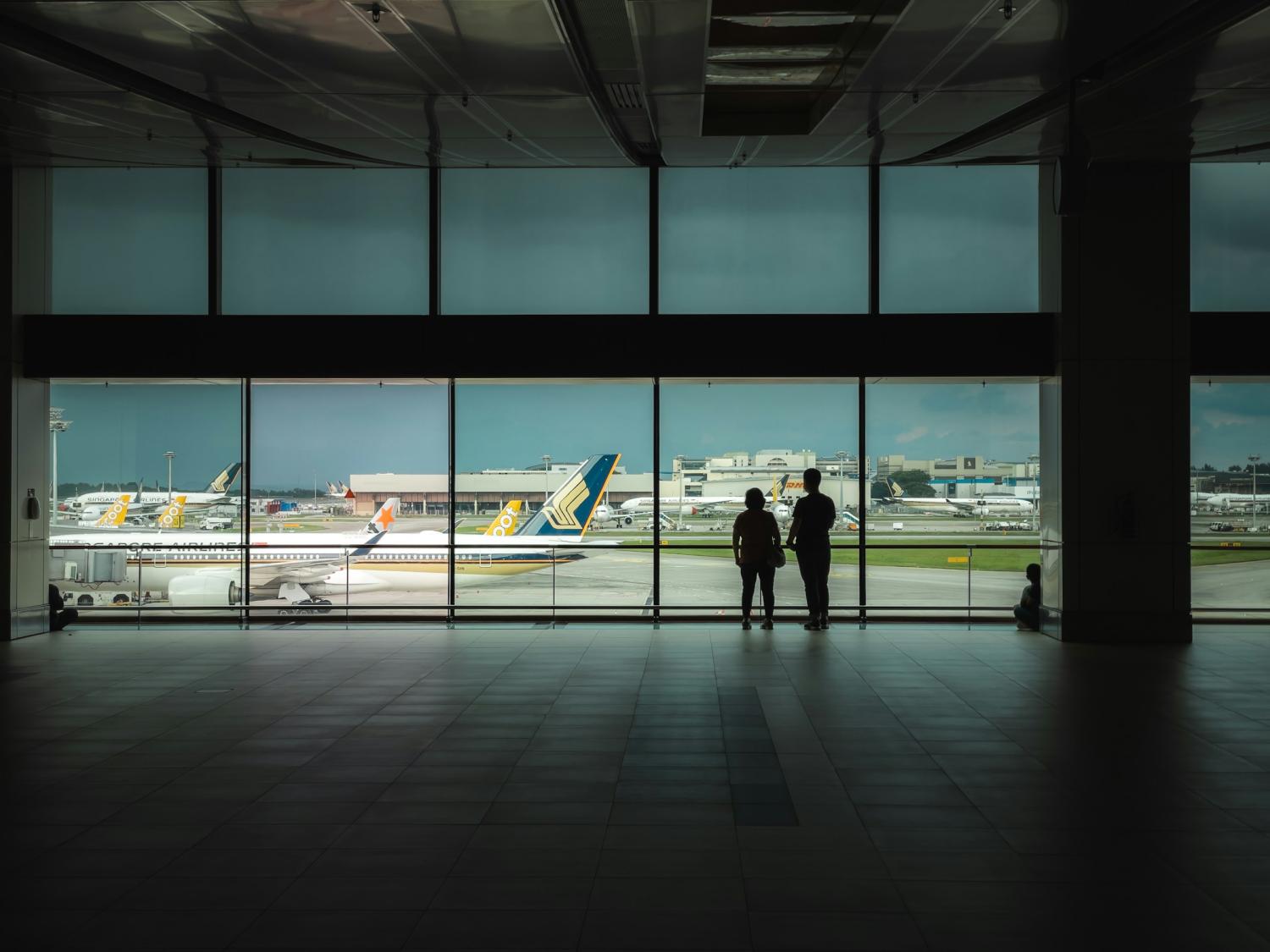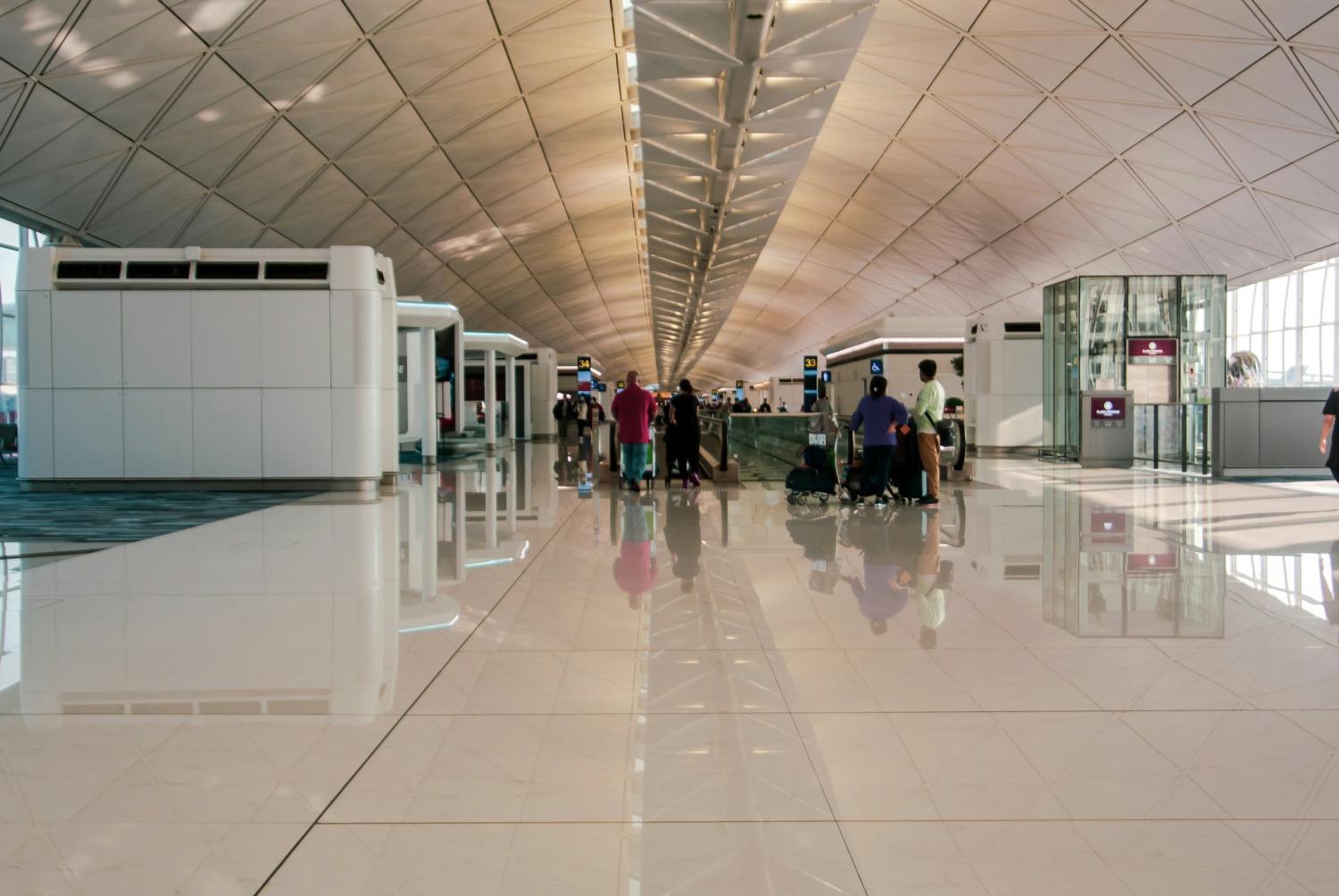Can I Get Compensation for a Delayed Flight?
We have all had the experience of having a flight delayed. And many of us have simply let the frustration get to us, becoming furious with the airline but not taking any concrete actions about it. We figure that airlines aren’t able to help us, particularly considering the fact that so many of them are cutting corners on other benefits (food, baggage, etc) these days.
But the fact is that in many cases, we can take action about flight delays. As the industry grows and flights become greater and greater in number, delays are more likely to happen. Add to this the fact that climate change, geopolitical issues, and other problems are complicating airlines’ efforts to remain timely, and what we have is an often hairy situation with regard to scheduling.

Can you get compensation for a delayed flight?
So, do airlines have to compensate for delays? The answer is maybe. But there are specific factors involved. And anyone interested in being compensated for what passengers pay needs to be fully familiar with the details regarding compensation both with their individual airline, with the country or countries under whose jurisdiction(s) the airline works, and their own personal circumstances.
What causes flight delays?
The first factor that we need to look at when considering the question of canceled flight compensation for what a passenger pays is what exactly causes flight delays and cancellations. We often think of certain airlines being greater offenders than others when it comes to flight delays and cancellations. However, considering that different airlines share the same airports, and weather and other factors are common among them, surely there must be some overlapping factors.
Delays and cancellations are generally caused by one of a few major things:
- Adverse weather conditions
- Sudden changes in available airspace
- Mechanical issues
- Insufficient passenger bookings
Of these factors, it is really only the last two that can be considered the fault of an individual airline. Nonetheless, each airline has the responsibility of managing incidents that cause delays and cancellations providing airline delays compensation to customers that are affected.
A brief history of flight compensation rules
People who are unhappy about rules governing mandatory payments for domestic or international flight delay compensation might take some comfort in the fact that things have actually gotten markedly better over the years. During the early years of air travel, there essentially was no such thing as delay or cancellation compensation. The first few decades of travel were something of an experiment in terms of numbers of flights, routes, and the art of flying in general. And pretty much no one in the industry foresaw the extent to which it would grow.
But it did, and to degrees that have shocked many that have been alive since the early days of flying. By the 1990s, it became clear that more needed to be done on a regulatory level to keep many aspects of the industry in proper working order. This included things like payment in the form of compensation for flight delays and cancellations. Therefore, a series of international agreements started being enacted to help regulate cancellation and delay compensation rules:
- In 1999, the Montreal Convention established the first proper system of airline payment liability with regard to cancellation, delays, baggage loss, personal injury or death, and other passenger rights.
- In 2004, the European Union established its own set of rules, including:
- Compensation for denied boarding
- Compensation for flight cancellation less than 14 days before a flight
- Compensation for long delays or cancellation, with the exact amount depending on the distance of a given flight rather than the number of delayed hours
- In 2009-11, the US Department of Transportation established its own set of rules to protect passenger rights, including:
- Rules regarding compensation for more than three hours spent on tarmac
- Rules defining “chronically delayed flights” as being an unfair industry practice
- Rules regarding the number of hours that airlines must respond to customer complaints in
Eligibility for compensation in the USA
Before you can file a complaint regarding flight delay compensation US or international, we should first define what eligibility for compensation standards are. We will start with the standards in the US. In general, if a flight arrives more than three hours late, and the reason for the delay or cancellation does not have to do with extraordinary circumstances - such as bad weather or air traffic control strikes - then travelers are eligible for compensation. This can include both monetary and other types of compensation, depending on various factors. Specifically, the rules in the US are the following:
- Eligibility for flight cancelled compensation and amounts are based upon the arrival time of a flight, rather than its departure time. In other words, the number of hours late that the flight arrives.
- Compensation is based upon a combination of the amount of distance traveled and the length of the delay. Specifically:
- For flights that cover less than 1500 kilometers, compensation is granted for a delay of more than two hours.
- For flights that cover between 1500-2500 kilometers, compensation is granted for a delay of more than three hours.
- For flights that cover over 3500 kilometers, compensation is granted for a delay of more than four hours.
If my flight is delayed what am I entitled to?
What people really want to know is, if my flight is delayed what am I entitled to? The answer is that there are several possible forms of compensation, but again, it all depends on the individual circumstances involved. Compensation can include:
- Money. Financial compensation can be provided, but it depends on the distance of the flight and the length of the delay.
- Accommodation and food. If a delay that is the fault of the airline causes passengers to have to wait overnight, the airline must provide accommodation, food, and drinks to the travelers.
- Refunds. If a flight is delayed by more than five hours, travelers can be eligible for a refund for the portions of their trips that they have not yet taken. For example, if a traveler experiences a delay of six hours on the first leg of a three-leg journey, they are eligible for a refund for the second and third parts of the trip.

Sample scenarios of how long a flight can be delayed before compensation, and how compensation plays out
To elucidate how a successful compensation scenario might play out, it is worthwhile to look at a couple of scenarios.
In-kind compensation
In considering the question of how to get compensation for delayed flight, let’s first consider a case in which compensation is given in kind, rather than in the form of money. If a US domestic flight is delayed by three hours, the airline is not obliged by law to provide compensation to passengers in the form of cash. However, passengers are eligible for refunds for the price of the ticket, plus whatever extra fees they might have paid when purchasing the ticket. Also, depending on the airline, various other forms of compensation might be provided.
- The airline will provide passengers with a refund for the ticket and any additional fees that were paid, including seat selection, baggage, etc.
- The airline will provide passengers with meal vouchers that can be used either in the airport, or - in cases in which passengers are forced to stay in a hotel - in the hotel’s restaurant/cafe.
- Accommodation. In cases in which passengers are forced to wait overnight for a new flight, airlines must also provide them with a hotel room, as well as transportation to and from the hotel.
Monetary compensation
The question of whether airlines will provide additional compensation to passengers for delayed flights basically depends on one question: how long can a flight be delayed before compensation? In this case, we mean specifically compensation in the form of cash.
The answer here is that it depends. Unfortunately, whether or not compensation in the form of money is provided to passengers for delayed flights is not a federal law in the US. However, because of the competitiveness in the industry, airlines that want to maintain a good reputation tend to offer it because they know that others will do so and that people will likely start going to the competition if policies are unfair.
How to get compensation for delayed flight
Now let’s turn to the question of how to get compensated. This is important, because if you do not follow the exact procedure required then you likely won’t get any compensation for your flight, even if you truly deserve it. What you should do is the following:
- Be sure to keep every possible piece of evidence related to your flight purchase history. Fortunately, we are living in the age of the Internet, so this no longer means keeping paper receipts as it did in the past. But be sure to have all your information in order, including your entire purchase history, reference numbers, and an itemized list of any extras that you paid for.
- entire purchase history, reference numbers, and an itemized list of any extras that you paid for. Be sure that you are eligible. Always first consider the question, “Can I get compensated for a delayed flight?” Many airlines have been continuously honing their regulations in recent years, partially as a defence mechanism because of the number of angry passengers that flare up at them without due cause. While it is natural to be enraged when all your plans suddenly go awry due to a cancellation or delay, it is critical that you step back and examine the rules calmly and carefully. Go to the airline’s website and read through the rules thoroughly to determine your eligibility.
- Send a claim. Once you have determined your eligibility, you should send a formal claim to the airline. Your claim should include several critical pieces of information:
- Your full name, as written on your ticket, as well as all your contact information including your address, phone number, and email.
- Your booking reference number and other ticket information.
- Your flight number, date, and the airport codes of all the cities that you flew through (or were due to fly through).
- A detailed description of what happened in the precise order in which it happened. You should include such information as the number of hours that you had to wait (this is essential), whether there was a delay or a cancellation, whether your baggage was lost, etc.
- A detailed description of your initial interaction with the airline. For example, if you approached an airline representative and were told that you were ineligible for compensation, you should include this. The more details you include, the stronger a case you will make for yourself.
- Any supporting documentation that will help your case. This can include things like receipts for a hotel that you had to stay in while waiting, any meals that you had to purchase, ground transportation costs, etc.
- Any visual evidence that you can provide. This can include photos or videos of having to wait in long lines, damage that took place to your luggage, etc.
- If applicable, any previous complaints. If you are in a situation in which you have already had an issue with a particular airline, you will be putting additional pressure on the airline to treat you well. Therefore, including copies of previous complaints could help your cause.
- If applicable, medical records. If an airline puts you in a situation in which they caused you injury in addition to a delay, you should be eligible for compensation. But be sure that you have a legitimate claim to compensation in this case. If your flight was delayed and you twisted your ankle because you accidentally tripped over someone’s luggage in the airport, this is not the airline’s fault.
How long can a flight be delayed before compensation?
Making claims about delays and cancellations can be a tricky business. It often happens that people either misunderstand the rules, do not read the rules carefully, or let their emotions overtake their sense of reason when filing a claim. It then appears that the airline has wronged them, and they end up raging publicly about how terrible the airline is. Regarding the question of time passed since your flight, yes, it is critical. But remember to go about the claims making process for delays or cancellations carefully, and if possible run your claim by someone else (ideally someone familiar with the process) before you file it. If you are denied, you might consider using a third-party service to help you.
Differences in jurisdiction
Another important thing that you should keep in mind when considering the question – can you get compensation for a delayed flight? – is the fact that rules are not identical globally. For example, there are significant differences between US and EU policies when it comes to compensation for delays. In general, the two policies vary in one fundamental respect: The EU has a standard policy of mandatory compensation that governs the issues of delays, cancellations, and denied boarding. In this sense, making a claim with an EU airline is more straightforward than making one with an American airline as the US does not have a federal law mandating compensation for delays. The only requirement in the US is that refunds for cancelled or partially cancelled flights must be given if a passenger chooses not to travel. The EU provides up to €600 to passengers affected by delays, cancellations, or denied boarding. The precise amount given depends on the distance of the flight, not the number of delayed hours. In the US, there is no such policy. These are just two examples of governing bodies that affect airline rules. There are many other parts of the world that have their own policies, of course, so you should always examine the policies of the governments in charge of whatever airline you fly with before you file a claim.

Rules are changing
Another thing that you should keep in mind when considering the question of compensation, flight hours, etc is that the rules are always changing. If you filed a claim with an airline five years ago, your eligibility for compensation (as well as the amount and conditions under which you may be compensated) is not necessarily the same as it was the first time. This relates to the number of delayed hours and other conditions.
The Trump administration, for example, has been enacting major changes to US policy on compensation. And this is seriously affecting many aspects of the rules for airlines:
- Mandatory amenities are now under question. This includes things like accommodation provision, meals, etc.
- Cash refunds may not be offered by airlines anymore.
- Airlines might not have to indicate itemized flight costs before bookings are made in the future.
- Rules regarding delay hours and their corresponding compensation costs are being questioned.
In short, rules are changing by the hour, and the US laws are just one example of how this is happening. So no matter how recently you might have studied compensation policy, you should always make sure that your knowledge is up-to-date because small details can make the difference between being compensated and not being compensated.
Be vigilant
While the business of filing and receiving compensation for delayed flights is complicated indeed, it is still worth doing if you are really eligible. The losses that you incur due to a long delay can be many: you can have your travel plans severely compromised, you can incur further monetary losses due to missed appointments, you can suffer a great deal of emotional stress, and more. When making a claim, be sure to be very meticulous in how you do it. Check the policies before you file, and be sure to follow up if you don’t hear back from the airline right away. If you go about the process logically and patiently, you should end up receiving the amount and type of compensation that you deserve.